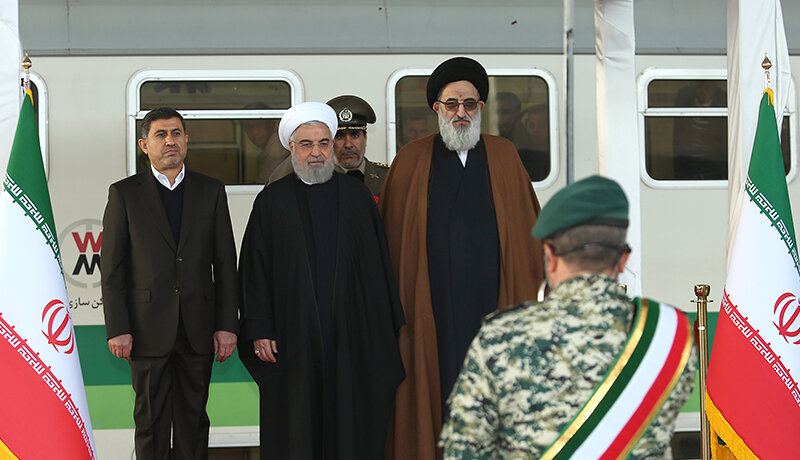Iran in worst days of sanctions: Rouhani

TEHRAN - Iranian President Hassan Rouhani said on Tuesday that the country is passing “the worst days” of sanctions imposed by the U.S., praising the people for their resistance and patience.
Addressing a ceremony arranged to inaugurate subway train in the western part of Alborz province, Rouhani hailed people for their firm stance and resistance in hard days of sanctions.
Pointing to the consequences of sanctions on the country, he said, “If we were not engaged in an imposed-economic war, we could enjoy a sum of $200 billion out of which $100 billion was income of crude export. Now we do not have that hefty amount of money.”
“We are managing the country without that $200 billion income. People are not living comfortably, however, we (the government) try as much as we can,” he went on to say.
Elsewhere in his remarks, Rouhani said, “People should expect the government to understand (the problems), to draft required plan (to solve the problem) and try (to implement its plan) as much as it can. If the government does not manage to do its duty it should be criticized.”
Noting that no ruler or government in the world will last long, the president said, “The only issue that will remain forever is rendering services to the people.”
Earlier this month, Rouhani said that Iran was resisting sanctions but his country had not closed the door to negotiations.
“We have no way but resistance against sanctions, however, we have not closed door of negotiations,” Rouhani said during a speech at the Insurance and Development Conference.
The president said if the sanctions against Iran were lifted, he would be ready to meet the leaders of the countries party to the 2015 nuclear deal.
“If they remove sanctions, we are prepared for talks at the level of 5+1 group’s heads of states,” Rouhani remarked.
The nuclear deal was signed between Iran and the 5+1 group (the five permanent members of the UN Security Council) plus Germany in July 2015.
Under the agreement, officially known as the Joint Comprehensive Plan of Action (JCPOA) and confirmed by the UN Security Council Resolution 2231, Iran was obligated to put limits on its nuclear program in exchange for the termination of the economic and financial sanctions.
However, Donald Trump, a presidential candidate favored by hawks in the U.S. and Israel, started harsh attacks against the JCPOA, vowing to tear it up if elected president.
Finally, in May 2018, he officially abandoned the JCPOA and introduced the harshest ever sanctions in history against Iran.
The Trump administration not only returned the previous sanctions lifted under the nuclear deal it added new ones, including a total ban on Iran’s oil exports.
Trump’s administration has even threatened to penalize any country or company that does business with Iran.
In response to the abrogation of the JCPOA by the U.S. and a failure by the remaining parties, particularly the Europeans, to protect Iran’s economy from the sanctions' effects, Iran has started to partially reduce its commitments to the JCPOA in accordance to the paragraph 36 of the multilateral agreement.
(Paragraph 36 provided a mechanism to resolve disputes and allows one side, under certain circumstances, to stop complying with the deal if the other side is out of compliance.)
Iran started to scale down its commitments after waiting for a full year that the remaining parties honor their obligations.
However, Tehran has insisted if sanctions are lifted it will immediately reverse its decisions.
MJ/PA
